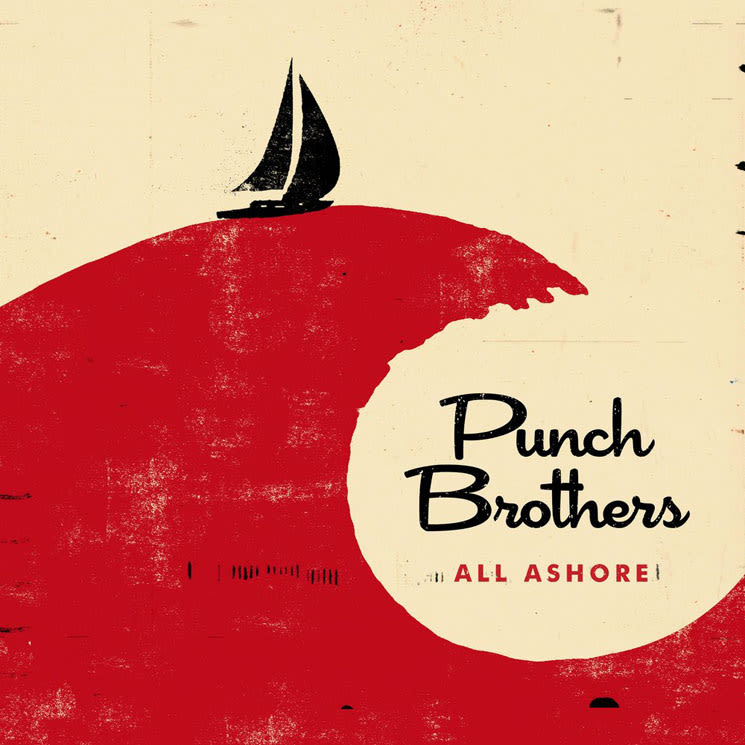Sometimes bluegrass, and its more contemporary cousins, can become a technical exercise in form, paying less attention to feeling and more to precision. Listening to the Punch Brothers often reminds me of this problem — genuinely beautiful, but a little bit cold. Considering the sheer mastery of their mandolin player Chris Thile and their banjoist, Noam Pikelny, the slippery problem of engagement becomes even more present. They are so good at playing such intricate and delicate work, that it cannot be art for art's sake. All Ashore mostly avoids these pitfalls.
It is often a very beautiful album — Pikelny skating through patterns that Thile makes, these patterns embroidered by the fiddle of Gabe Witcher, and grounded by the bass player Paul Kowert. There is something lonely, and yearning, about that fiddle, made more serious by an intricate filigree of picked banjo on the title track. Everything could be too performative, but the song is full of shimmering longing.
The longing sometimes falls flat. The music is better than the vocals, and sometimes the vocals fall apart. It is not only the overwrought metaphors, but Chris Elridge and Paul Kowert's vocals. Sometimes they are pitched a little too high, moving too quickly through a song, or as a form of artificial speech, not quite moving into singing. In the simple story song, "Jumbo," they appear a little flat.
There is less attention paid, it seems, not to the writing, which is often clever and quite sharp, but to the performing of the writing against the virtuosity of the instrumental performances. The balance puts the album unnecessarily on edge. All that said, this is one of the better examples of what post- or progressive bluegrass can do.
(Nonesuch)It is often a very beautiful album — Pikelny skating through patterns that Thile makes, these patterns embroidered by the fiddle of Gabe Witcher, and grounded by the bass player Paul Kowert. There is something lonely, and yearning, about that fiddle, made more serious by an intricate filigree of picked banjo on the title track. Everything could be too performative, but the song is full of shimmering longing.
The longing sometimes falls flat. The music is better than the vocals, and sometimes the vocals fall apart. It is not only the overwrought metaphors, but Chris Elridge and Paul Kowert's vocals. Sometimes they are pitched a little too high, moving too quickly through a song, or as a form of artificial speech, not quite moving into singing. In the simple story song, "Jumbo," they appear a little flat.
There is less attention paid, it seems, not to the writing, which is often clever and quite sharp, but to the performing of the writing against the virtuosity of the instrumental performances. The balance puts the album unnecessarily on edge. All that said, this is one of the better examples of what post- or progressive bluegrass can do.
